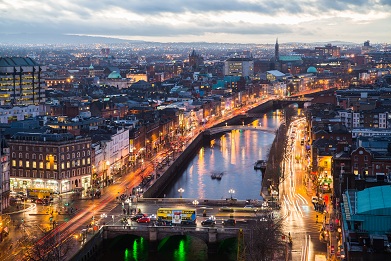New ideas to improve city life

Related topics
Environment & climate action Innovation Belgium Bulgaria Denmark Germany Ireland Italy Netherlands Slovenia Spain United Kingdom Environment Taiwan Serbiadate: 06/05/2014
Project: Transitioning towards Urban Resilience a...
acronym: TURAS
See also: CORDIS
Contact: www.turas-cities.org/
“As we move towards more sustainable growth, we do not want to jeopardise life in cities,” says TURAS project coordinator Marcus Collier from University College Dublin (UCD), Ireland. “This project is about developing a series of strategies to change cities in piecemeal ways. And while some cities are more advanced in their adaptation, we want to develop a coherent strategy everyone can use,” he says.
The environmental challenges facing European cities include the loss of urban biodiversity leading to increased flood risk and the growing urban consumption footprints on the surrounding rural areas. TURAS project team brings together decision makers from local authorities, SMEs and academics to develop the strategies, spatial scenarios and guidance tools needed to help cities address environmental challenges.
The research areas of the project vary. Flood risk is a particular concern for Rotterdam, Ljubljana, Stuttgart and London, and the researchers will look at new ways of using up rainwater. Stuttgart, for example, is building a “green wall” in a park area that can use the water while mollifying the heavy summertime heat, using natural processes to cool the city.
In Brussels and Rome, the focus is on finding ways to support sustainable local businesses, while Dublin and Nottingham are looking at feasibility of using derelict sites to increase urban biodiversity and improve urban community life. In Aalborg, it is about finding ways to implement the city’s pledge to convert the municipal energy system to 100% renewable sources by 2050.
“We do not want a one-stop-shop for everyone,” says Collier. “While the same overall rules should apply, how they are applied them is different in each city. It is up to individual cities to do what they can,” he adds.
A key element of the project is engaging with local citizens to get their input on sustainability issues. TURAS project team is developing an interactive forum for people to access their own city services online, and upload their own data, for example on bus services. “It is about developing a communication platform informing citizens of what is happening and allowing them to give feedback,” explains Collier.
The commitment to sustainable and green solutions won TURAS a Champions of European Research award, which was presented to the project by Irish President Michael Higgins in June 2012.
